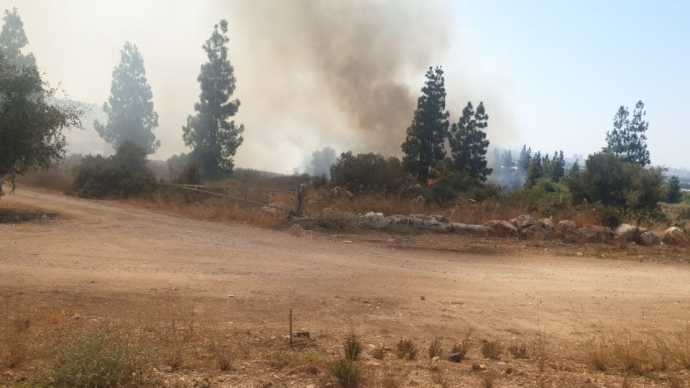An Israeli study for the Ministry of Environmental Quality shows that heat waves disproportionally kill elderly, women and socioeconomically disadvantaged.
Published: MAY 31, 2022

A sizzling heat wave not only makes you stay indoors, press your air conditioner’s remote control, pour a cold drink and apply antiperspirant, it can actually kill you, especially if you have passed your 70th birthday.
A study by the Environmental Protection Ministry sheds light for the first time on the connection between the climate crisis and resulting heat waves and mortality in Israel. Each heat wave leads to an average excess mortality of 45 people, and the harm is particularly great among the elderly, according to the study.
“The climate crisis is a real threat to health and life,” Environmental Protection Minister Tamar Zandberg said Tuesday at a press briefing. “The study shows the impact of heat waves [sharav in Hebrew] and the climate crisis on excess mortality, especially in vulnerable populations. All government bodies and local authorities must prepare for the heat waves so as to reduce premature mortality, suffering and medical expenditures.”
The climate crisis is a real threat to health and life
Minister Tamar Zandberg
According to Prof. Noga Kronfeld-Schor, an expert in ecological physiology at Tel Aviv University (TAU) who became the Environmental Protection Ministry’s chief scientist last year: “Compared to floods or fires, in which the direct physical impact on the economy and human health is clear, the impact of heat waves is more complex. It is very important to understand the medical consequences of heat waves to prevent harm to the population and prepare for them as much as possible. Most medical consequences of heat waves can be prevented by early warning systems.”
“The ministry is working within the framework of the climate-change assessment program to prepare for extreme weather and the expected increase in their intensity, frequency and duration due to climate change,” she said.

TAU study
The study funded by the ministry was conducted by Dr. Dan Yemin and Dr. Erez Shmueli of TAU at Kronfeld-Schor’s invitation. As part of the study, a preliminary analysis was performed to examine the presence of “excess mortality” in Israel following heat waves.
The team said to the best of their knowledge, the connection between heat waves and mortality had not been examined in Israel before. They studied heat waves that occurred from 2012-2020 and analyzed mortality data in Israel (excluding COVID-19) in parallel with the events of extreme weather.
The analysis was performed in two different ways: the first by examining abnormality in excess mortality according to an existing model that characterized the daily mortality pattern in Israel and was based on daily data of temperature, humidity and acute respiratory infection; and the second by comparing weeks in which there was a heat wave with the weeks just before and after, regardless of the model forecasts.
In both methods, it was found that in Israel, there was a sharp and significant increase in deaths during the weeks when there were heat waves. On average, each heat wave led to the deaths of about 45 people, whose lives might have been spared had there been proper preparations, the study found.
As a result of the eight heat waves cases defined as such by the Meteorological Service and examined in the study, an excess mortality of 363 people was found. For example, after the heat wave that began on April 26, 2013, 871 people died, while model forecasts predicted a weekly mortality of 811 people (excess mortality of 60 people).
Most of the abnormality in the figures involved men and women over the age of 70, who accounted for 88.5% of all deaths following a heat wave. This figure in itself constitutes a deviation from the norm, since routinely, this age group constitutes 70%-73% of the total deaths. The data therefore indicates the high sensitivity of this population to heat waves, according to the study.
Studies in various countries around the world have found that not only is the mortality rate on the rise as a result of hot flashes, but also the number of hospitalizations, duration of hospitalization and healthcare costs are rising significantly.
Reasons for hospitalization include cardiovascular disease, cerebrovascular disease (damage to blood vessels in the brain), acute respiratory distress syndrome and kidney disease, in which patients are more sensitive to heat, as well as psychiatric and dehydration conditions.
In addition, studies around the world have indicated that the impact of heat waves on hospitalizations and mortality is particularly high in adults, women and people with low socioeconomic status.
The frequency, intensity and duration of heat waves throughout the world, including in Israel, are on the rise, and the rate of increase is higher than expected so far.
https://www.jpost.com/environment-and-climate-change/article-708179
